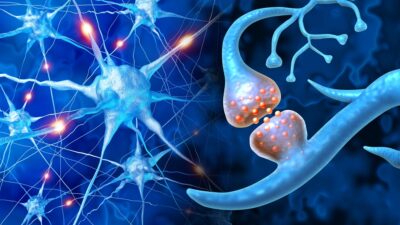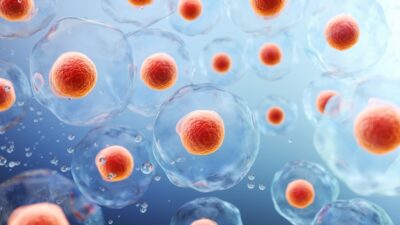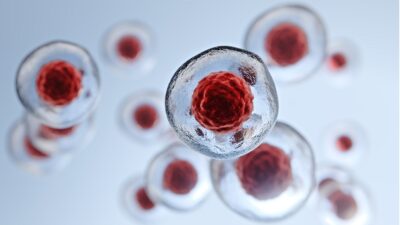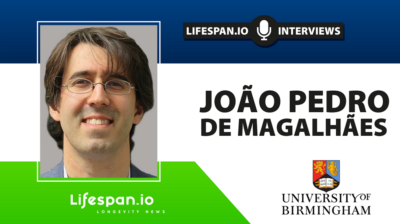Rejuvenation Roundup April 2021
- Political goals, biotech investment, and plenty of research this month.

We’ve all aged another month, but we’re another month closer to discovering how to reverse it. Here’s what we’ve learned about aging in the month of April.
LEAF News
Promising to connect biotech innovators and investors, researchers and policymakers, the Longevity Leaders World Congress will start tomorrow and continue through Friday. It will focus on aging science, aging well, and financing of longevity. Content access will be free; 1:1 partnering will be available for different levels of paid registration.
Political Outreach
 The All-Party Parliamentary Group on UK Healthcare Equality: The APPG’s new initiative aims to close the life expectancy gap, address health inequality in the UK, and foster a preventative approach to healthcare to support healthy longevity.
The All-Party Parliamentary Group on UK Healthcare Equality: The APPG’s new initiative aims to close the life expectancy gap, address health inequality in the UK, and foster a preventative approach to healthcare to support healthy longevity.
The Senate Special Committee on Aging Needs Better Focus: In this op-ed, Breanna Deutsch informs us that the United States Senate has a Special Committee on Aging but that it has little to do with the actual processes of aging.
 EU Green Paper on Aging Falls Short of the Mark: Steve Hill explains that, similar to the situation in the United States, this green paper makes no mention of the potential of therapies that seek to target the aging processes directly.
EU Green Paper on Aging Falls Short of the Mark: Steve Hill explains that, similar to the situation in the United States, this green paper makes no mention of the potential of therapies that seek to target the aging processes directly.
Lifespan News
AI for Longevity Drugs: A new company using AI and deep learning for longevity drug development, the regrowth of missing teeth in mice, and to grow human muscle tissue in pig embryos. We also discussed a new means of stopping colorectal cancer from proliferating.
Depression and Aging: The GrimAge clock showing that major depression accelerates aging, the NIH’s project to study senescent cells, research on the pace of aging, brain cells and DNA repair, and selenium supplementation’s effects on obesity in mice.
CRISPR Epigenetic Breakthrough: A new CRISPR breakthrough, the creation of new neurons from astrocytes in vivo, the Dog Aging Project on Science to Save the World, serum albumin increasing lifespan in a mouse study, and the effects of hypoxia on the SASP.
European Longevity Initiative: The European Longevity Initiative, the effects of spermidine on cognitive function, diet and exercise to reduce epigenetic age, B-cell depletion for ameliorating Alzheimer’s, and RNA deep sequencing that monitors the progression of Parkinson’s disease.
Science to Save the World
Rejuvenation Roundup Podcast
Ryan O’Shea of Future Grind hosts this month’s podcast, showcasing the events and research discussed here.
Advocacy
 Some Animals Don’t Age; We May Do Likewise: Some marine species are negligibly senescent: they do not noticeably deteriorate over time.
Some Animals Don’t Age; We May Do Likewise: Some marine species are negligibly senescent: they do not noticeably deteriorate over time.
The “Not in my Lifetime” Argument: It used to be completely impossible, but rejuvenation biotechnology has grown from a fictional dream into a quickly growing field
 Increased Longevity and Lost Motivation: The idea that healthy longevity would deprive us of motivation in life is incredibly bizarre.
Increased Longevity and Lost Motivation: The idea that healthy longevity would deprive us of motivation in life is incredibly bizarre.
Increased Longevity and Cultural Stagnation: Try explaining to your grandfather that he has to put up with heart disease because we’re afraid that people his age may all become troublemakers if allowed access to life-extending technologies.
 Rejuvenation is Not Immortality: The most intuitive, commonly accepted meaning of “immortality” is that it describes someone who cannot die at all.
Rejuvenation is Not Immortality: The most intuitive, commonly accepted meaning of “immortality” is that it describes someone who cannot die at all.
Increased Longevity and Overpopulation: Since the 1960s, both birth rate and population growth have been gradually falling.
 Are There More Urgent Issues Than Aging?: Whether or not we think there are more urgent problems than aging doesn’t change the fact that rejuvenation research is nothing more and nothing less than medical research.
Are There More Urgent Issues Than Aging?: Whether or not we think there are more urgent problems than aging doesn’t change the fact that rejuvenation research is nothing more and nothing less than medical research.
Some People Worry that Longer Lives Mean Longer Decrepitude: This concern is based on the ancient Greek myth of Tithonus, which might be thought of as a cautionary tale of the alleged inherent dangers of indefinite longevity.
Summaries
 A Summary of Apigenin: Found in chamomile, this flavonoid has traditional uses that can be biochemically explained.
A Summary of Apigenin: Found in chamomile, this flavonoid has traditional uses that can be biochemically explained.
A Summary of Niacin (Nicotinic acid): Recent human trials have shed new light on its possible role of niacin in addressing mitochondrial dysfunction and aging.
 The Blood-Brain Barrier’s Role in Brain Aging: As Nina Khera explains, research suggests that the degradation of the blood-brain barrier over time is a factor in the development of brain diseases.
The Blood-Brain Barrier’s Role in Brain Aging: As Nina Khera explains, research suggests that the degradation of the blood-brain barrier over time is a factor in the development of brain diseases.
Research Roundup
New CRISPR Technology Allows Turning Genes Off and On Again: Directly affecting methylation sites across the genome allows for precise targeting of epigenetic changes.
 Selenium Supplements Protect Against Obesity in Mice: A recent study has shown that mice given selenium supplements were protected against the effects of a high-fat diet, similar to mice with a restricted methonine intake.
Selenium Supplements Protect Against Obesity in Mice: A recent study has shown that mice given selenium supplements were protected against the effects of a high-fat diet, similar to mice with a restricted methonine intake.
A Non-Invasive Biomarker to Track Cellular Senescence: A lipid metabolite could serve as a novel biomarker to test the performance of senolytics, according to a new study. Such a biomarker can be detected from blood or urine.
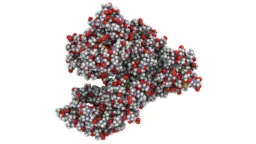 Researchers Claim Serum Albumin Increases Mouse Lifespan: Researchers behind a new manuscript claim that the lifespans of middle-aged mice can be increased up to 20% with a treatment of recombinant serum albumin every 3 weeks.
Researchers Claim Serum Albumin Increases Mouse Lifespan: Researchers behind a new manuscript claim that the lifespans of middle-aged mice can be increased up to 20% with a treatment of recombinant serum albumin every 3 weeks.
Researchers Convert Astrocytes to Neurons in Vivo: This technique paves the way for possible future brain regeneration therapies.
 Hypoxia Reduces SASP Without Reducing Senescent Cell Burden: A new study in Molecular Cell has shown that the benefits of hypoxia may be derived from a suppression of the inflammatory SASP.
Hypoxia Reduces SASP Without Reducing Senescent Cell Burden: A new study in Molecular Cell has shown that the benefits of hypoxia may be derived from a suppression of the inflammatory SASP.
RNA Deep Sequencing Uncovers Parkinson’s Progression: A massive RNA sequencing effort has identified changes in microRNA associated with Parkinson’s. Some of the changes correlated with disease progression.
 Diet, Exercise Reduce Epigenetic Age in Human Clinical Trial: Researchers have found that an eight-week program of diet, exercise, and meditation reduces epigenetic age by approximately two years in males between the ages of 50 and 72.
Diet, Exercise Reduce Epigenetic Age in Human Clinical Trial: Researchers have found that an eight-week program of diet, exercise, and meditation reduces epigenetic age by approximately two years in males between the ages of 50 and 72.
B-cell Depletion Ameliorates Alzheimer’s in Mice: According to a new study, Alzheimer’s disease is connected to inflammaging, which causes B-cells to change their phenotype and hamper amyloid-ß removal.
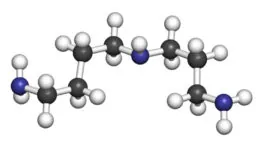 Spermidine for Cognitive Function in Flies, Mice, and Humans: Recently published research in Cell Reports provides a detailed account of dietary spermidine improving cognition and mitochondrial function in flies and mice
Spermidine for Cognitive Function in Flies, Mice, and Humans: Recently published research in Cell Reports provides a detailed account of dietary spermidine improving cognition and mitochondrial function in flies and mice
GrimAge Links Aging and Major Depression: People with major depressive disorder may have biological ages that are two years over their chronological ages.
 NMN Human Trial Suggests Improved Muscle Glucose Metabolism: Administration of NMN appeared to improve the ability of insulin to increase glucose uptake in skeletal muscle.
NMN Human Trial Suggests Improved Muscle Glucose Metabolism: Administration of NMN appeared to improve the ability of insulin to increase glucose uptake in skeletal muscle.
Qigong Attenuates Age-Related Cognitive Decline in Trial: This traditional practice was found to have substantial physical benefits for the brain.
 Smelling Food Undermines Dietary Restriction in Nematodes: Experiments by researchers in China and the US have shown that the smell of food is enough to reduce the lifespan gains caused by dietary restriction in nematodes.
Smelling Food Undermines Dietary Restriction in Nematodes: Experiments by researchers in China and the US have shown that the smell of food is enough to reduce the lifespan gains caused by dietary restriction in nematodes.
Drug Allows Healing Without Scars in Mice: Researchers have been trying to find out how to stop the formation of scars for decades, and now, thanks to a new mouse study, they are one step closer.
17-a-estradiol late in life extends lifespan in aging UM-HET3 male mice: In genetically heterogeneous mice, the “non-feminizing” estrogen 17-a-estradiol extended median male lifespan by 19% in this study.
Effect of long-term treatment with C60 fullerenes on the lifespan and health status of CBA/Ca mice: The researchers suggest that the protective effect of fullerenes is in opposition to the negative effect of olive oil in CBA/Ca mice.
Nicotinamide mononucleotide and melatonin counteract myocardial ischemia-reperfusion injury: This combination was shown to activate SIRT3/FOXO1 and reduce apoptosis in aged male rats.
Rapamycin Added to Diet in Late Mid-Life Delays Age-Related Hearing Loss in UMHET4 Mice: The results show that a later life addition of rapamycin can decrease age-related hearing loss in the mouse model, however, it also suggests that this decrease is a delay/deceleration rather than a complete prevention.
Rapamycin restores brain vasculature, metabolism, and blood-brain barrier in an inflammaging model: These results indicate that rapamycin may play an important therapeutic role in inhibiting neuroinflammation by normalizing brain vascularity, BBB, and some brain metabolites, and it has a high translational capability.
No evidence of physiological declines with age in an extremely long-lived fish: Bigmouth buffalo may be negligibly senescent.
The COVID-19 Pandemic Appears to Have Increased Longevity in Japanese Centenarians: The protective measures put in place also protected these elderly people against other viruses.
50 years of the “war on cancer”: lessons for public health and geroscience: The year 2021 marks the 50th anniversary of the National Cancer Act of 1971 and President Richard Nixon’s declaration of a “war on cancer”.
Hyperbaric oxygen therapy effectively alleviates D-galactose-induced age-related cardiac dysfunction in pre-diabetic rats: This study shows that this therapy reduced metabolic impairments and mitochondrial dysfunction while increasing autophagy, resulting in an improvement of cardiac function in aged pre-diabetic rats.
Low-magnitude vibration alleviates age-related bone loss by inhibiting cell senescence of osteogenic cells in naturally senescent rats: After this treatment, the number of osteogenic cells staining positively for senescence-associated ß-galactosidase (SA-ß-Gal) decreased significantly.
News Nuggets
 VitaDAO to Launch Longevity Biotech by Democracy: VitaDAO will aim to fund longevity research, give its members ownership of the resulting IP, and allow members to vote on the direction of the organization.
VitaDAO to Launch Longevity Biotech by Democracy: VitaDAO will aim to fund longevity research, give its members ownership of the resulting IP, and allow members to vote on the direction of the organization.
SenNet: The NIH Large-Scale Cellular Senescence Initiative: The National Institute of Health is going all-in on cellular senescence with its recently announced SenNet program. We asked two of the leading experts in aging research to weigh in on this initiative.
 Jim Mellon’s Funding of Longevity Projects: How does an idea that is too unconventional for mainstream channels get funded? Often, even venture capitalist firms are too risk-averse, and government funding agencies are too entrenched in the status quo.
Jim Mellon’s Funding of Longevity Projects: How does an idea that is too unconventional for mainstream channels get funded? Often, even venture capitalist firms are too risk-averse, and government funding agencies are too entrenched in the status quo.
FDA-Approved Drug Is a Candidate for Dry AMD Treatment: Researchers have determined that directly improving autophagy through flubendazole is potentially useful in treating dry age-related macular degeneration, a disease that causes vision loss.
 BioAge Off to a Rapid Start in 2021: BioAge Labs is off to a fast start in 2021, with two drugs in its pipeline now undergoing clinical trials and a third planned to start in the near future.
BioAge Off to a Rapid Start in 2021: BioAge Labs is off to a fast start in 2021, with two drugs in its pipeline now undergoing clinical trials and a third planned to start in the near future.




